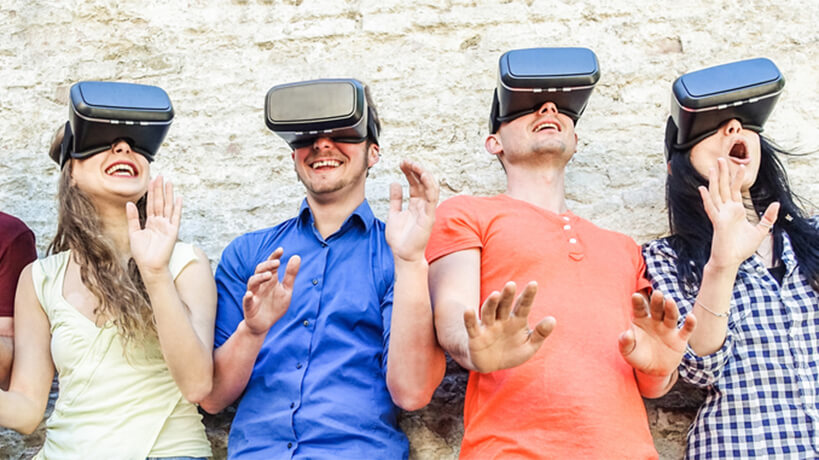A recent study conducted at Cornell University revealed that virtual-reality environments have an effect on the way that we experience and consume food. Will the immersive digital world land on a convention menu?
By now, you probably think you’ve heard every imaginable way that virtual reality will revolutionize the events industry — replacing site visits, creating a deeper connection with more powerful storytelling, and preparing keynote speakers. F&B might be next.
Researchers at Cornell University conducted a test of around 50 hungry participants to understand how virtual-reality environments impact their sense of taste. The diners ate three identical samples of blue cheese while wearing VR headsets that immersed them in three different environments. As they ate their samples, they explored 360-degree videos of a standard sensory booth, a park bench, and a cow barn. Researchers gauged an important question related to tasting cheese: How pungent was it? Participants in the cow barn ranked the pungency significantly higher than those in the other two environments.
“When we eat, we perceive not only just the taste and aroma of foods, we get sensory input from our surroundings – our eyes, ears, even our memories about surroundings,” Robin Dando, associate professor of food science and senior author of the study, said in a release about the findings. “We consume foods in surroundings that can spill over into our perceptions of the food.”
Should we start giving attendees VR headsets that transport them to a sidewalk in Paris to pair with a French-inspired meal? How about a German beer hall to enjoy brats and raise a toast with oversized steins? Probably not, because that seems like an awkward way to eat a meal. The research was not conducted to determine if restaurants and catering groups should give all their customers a VR headset. Instead, it was done to help food manufacturers find more efficient ways to conduct food-sensory evaluations. For event organizers, the findings underscore the important role the physical environment in which we host meal events plays in the overall attendee experience.
And while it seems unlikely virtual reality will become a fixture in the culinary experience, who can say? I bet you wouldn’t have expected to see robots making cheeseburgers, either, and it’s happening right now in San Francisco.
You may not digitize your meeting’s menu soon, but you can learn some valuable lessons about incorporating new technologies in other portions of the program. Check out the Convene CMP feature “Creating Compelling Digital Experiences” for some inspiration.

